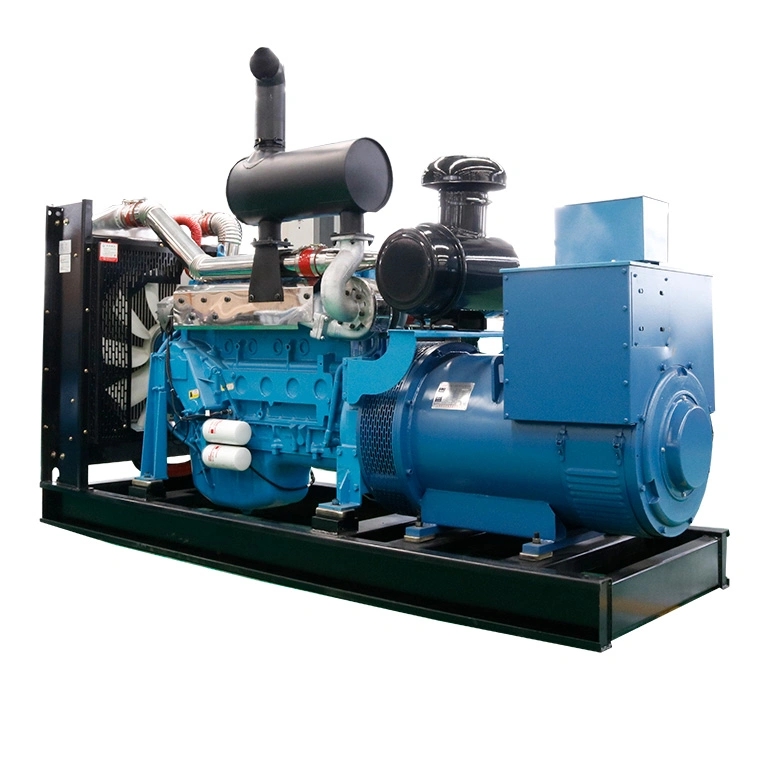Introduction
Diesel generators are widely used in various industries and applications for reliable power generation. One important aspect of diesel generators is their ability to operate at a constant speed, which is crucial for maintaining efficiency and performance. In this article, we will explore the importance of constant speed operation in diesel generators, its benefits, challenges, and best practices for maximizing efficiency and performance.
Importance of Constant Speed Operation
Constant speed operation is essential for diesel generators as it helps to maintain a stable frequency and voltage output. This is critical for powering sensitive electronic equipment and ensuring a consistent supply of electricity. In applications such as data centers, hospitals, manufacturing plants, and telecommunications facilities, any fluctuations in frequency or voltage can lead to equipment damage, downtime, and financial losses.
Moreover, constant speed operation is also important for the overall efficiency of the diesel generator. Operating at a consistent speed allows the engine to run at its optimal performance level, resulting in lower fuel consumption, reduced emissions, and extended engine life. By maintaining a steady speed, the generator can deliver a reliable and uninterrupted power supply while maximizing its efficiency.
Benefits of Constant Speed Operation
There are several key benefits of constant speed operation in diesel generators:
1. Improved Stability: Constant speed operation helps to maintain a stable frequency and voltage output, which is essential for powering sensitive equipment and preventing voltage fluctuations.

2. Enhanced Efficiency: Operating at a constant speed allows the diesel generator to run at its optimal performance level, resulting in lower fuel consumption and reduced operating costs.
3. Extended Engine Life: By running the engine at a consistent speed, wear and tear on engine components are minimized, leading to longer engine life and reduced maintenance requirements.
4. Reliable Power Supply: Constant speed operation ensures a continuous and reliable power supply, reducing the risk of downtime and equipment failure.
Challenges of Constant Speed Operation
While constant speed operation offers many benefits, there are also some challenges that need to be addressed to ensure optimal performance:
1. Load Variations: Diesel generators operating at a constant speed may struggle to adjust to sudden load variations, leading to voltage fluctuations and potential damage to equipment.
2. Fuel Efficiency: Maintaining a constant speed can be challenging when the load on the generator fluctuates frequently, affecting fuel efficiency and overall performance.
3. Engine Wear: Constant speed operation can result in increased wear on engine components, especially if the generator is subjected to frequent start-stop cycles or operates at partial loads.
Best Practices for Constant Speed Operation
To overcome the challenges associated with constant speed operation and maximize the efficiency and performance of diesel generators, the following best practices should be followed:
1. Proper Sizing: Ensure that the diesel generator is properly sized to meet the power requirements of the load, taking into account factors such as peak demand, starting currents, and future expansion.
2. Regular Maintenance: Follow a routine maintenance schedule to keep the generator in optimal condition, including oil changes, filter replacements, and inspection of critical components.
3. Load Management: Implement load management strategies to minimize sudden load variations and ensure a stable power supply, such as using load banks or staggered start-up sequences.
4. Industrial Diesel Generator and Control: Use advanced monitoring and control systems to track the performance of the generator, detect any anomalies, and adjust the speed and fuel consumption as needed.
5. Fuel Quality: Use high-quality fuel and ensure proper fuel storage and filtration to prevent contamination and maintain engine efficiency.
Conclusion
Constant speed operation is essential for maximizing the efficiency, stability, and performance of diesel generators. By maintaining a steady speed, diesel generators can deliver a reliable power supply, reduce fuel consumption, and extend engine life. While there are challenges associated with constant speed operation, following best practices such as proper sizing, regular maintenance, load management, monitoring, and fuel quality control can help overcome these challenges and ensure optimal performance. By implementing these strategies, industries and businesses can benefit from a reliable and efficient power supply that meets their operational needs.
